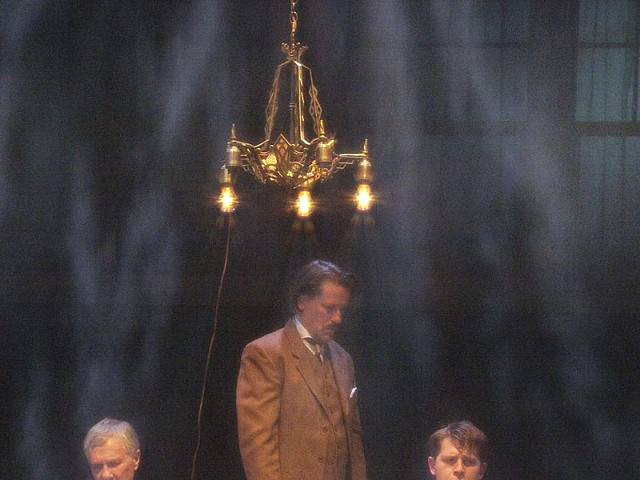Glaspell is almost completely forgotten today, despite the fact that in 1931 (three years after O'Neill won his third Pulitzer Prize, for Strange Interlude), she won a Pulitzer for her play Alison's House. In 1915 Glaspell cofounded the now-historic Provincetown Players on Cape Cod. The following summer she arranged for the first-ever reading of a play by Eugene O'Neill, "Bound East for Cardiff." "Trifles" debuted that same summer. Imagine Long Day's Journey's Edmund finally leaving his family and striking out on his own. "Trifles," a rather trifling account of two women who are more adept at crime solving than are their officious husbands, is one of the first plays Edmund/Eugene would have seen. It has the resonance of theater history about it.
The umbrella title for this West End production is A Woman's Place: Ordinary Women in Extraordinary Circumstances. Extraordinary? I'm not so sure, though there is much talk here of murder and strangulation. In addition to "Trifles," the evening — which has been directed by Renee Sevier-Monsey and Carrie Phinney — offers short works by David Mamet, Harold Pinter and William Saroyan. As we were leaving the theater, someone was heard to mutter, "Mamet is just being Mamet," to which someone else countered, "And Pinter is just being Pinter." I would not dispute either opinion.
Mamet's "Australia" is a mere sketch of a conversation between two women about how a man killed his wife, and how differently things might have turned out but for a missed date to the movies. Your guess is as good as mine as to what the Pinter piece, "Ashes to Ashes," is about. The two characters onstage might be husband and wife, and the wife might be delusional. I seem to remember hearing the line, "A pen has no parents," which was countered with, "You can't sit there and say things like that." But of course Pinter can, and does — though that doesn't mean we know what he's talking about, or care.
The Saroyan piece, "Hello Out There," which opens Act Two, both charms and intrigues. Written (and set) in 1941, the play concerns the brief courtship between a prisoner in a Texas jail and the shy girl who brings him his food. Anthony Wininger portrays the boy with a winning bravado; Elissa Schrader projects a winsome beauty upon the girl. Together they weave a magical spell that reminds us of the satisfactions of a well-structured one-act play, where every second counts and every line has a purpose. All these decades later, "Hello Out There" remains fresh and original. It's lovely to see it performed so evocatively.





